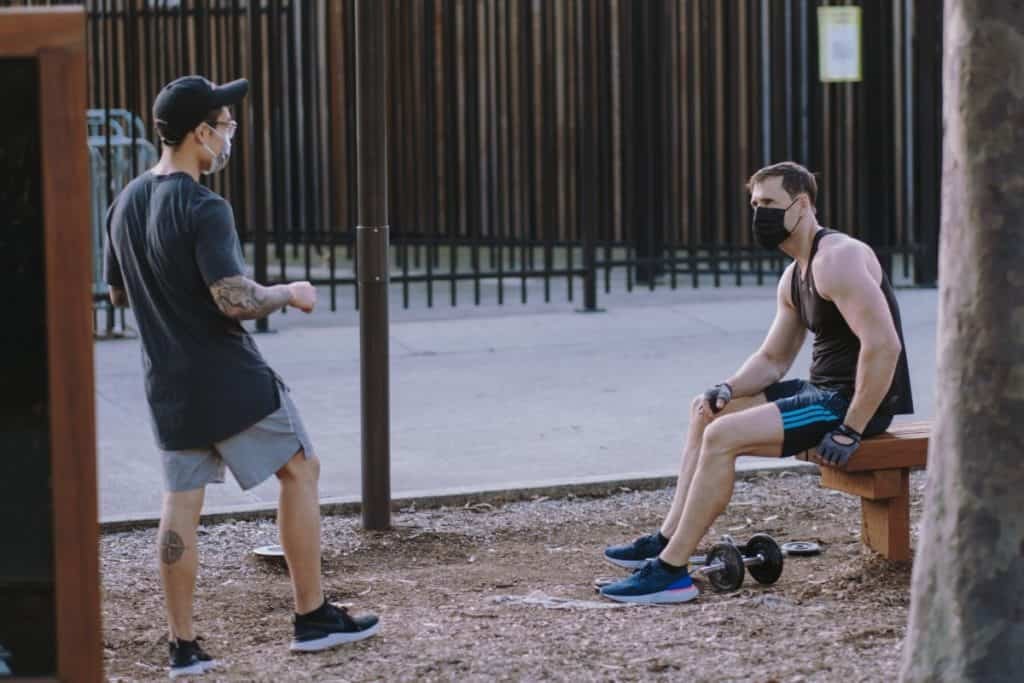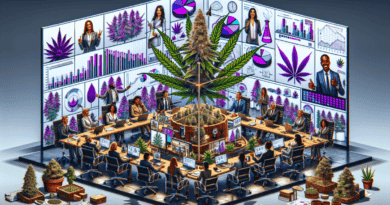Social Distancing Creates Bonding in the Cannabis Community: How it Shows up in Grammar

Receptiviti, like many tech companies, has transitioned over the past month to operating entirely remotely.
Spring would usually mean a lot of outdoor activities for many of us, but instead we’re sitting in the isolation of our own homes, adjusting our webcams and keeping one eye on a dark and troubling newsfeed.
Those of us who are working easily from home are the lucky ones. Those who work in essential roles and can’t stay home are faced with heroic tasks, while many who work in the Cannabis Service Industry are losing some or all of their incomes.
During this time when the world is filled with troubling and stressful realities to digest, many healthy coping mechanisms, such as in-person socialization and outdoor exercise, are discouraged, prohibited, or difficult to access safely.
It won’t be news to anyone that this takes a huge toll on our collective mental state, but at Receptiviti we want to understand how society’s mental state is shifting and we want to share what we find with you.
Receptiviti is an industry leader in the field of natural language understanding.
We process the language that people use in their daily lives to generate insights about their psychological states.
This month, our science team has used the Reddit API and our own Receptiviti API to calculate psychological scores on the comment histories of Reddit users (Redditors) who have recently posted a submission or comment about COVID-19.
At a glance, these data show a recent dramatic change in our social identity. People see themselves now more than ever as part of communities and connected with others.
Despite the physical separation of social distancing, people are on the whole more socially connected than they’ve been at any point in recent history.
Since language is inherently social, we can see traces of increased social bonding in many ways – one of the clearest, though, is the ratio of first-person singular to first-person plural pronouns.
When speaking about yourself (in first-person), you can use either singular pronouns (I, me, my, mine, myself, etc.) or plural ones (we, us, our, ours, ourselves, etc.).
The choice between singular or plural is made by your brain as subconsciously as eye movements, but it reveals a lot about how you view yourself in relation to those around you.
We don’t have to look any further than social media feeds to see that people have been reaching out to their communities more than usual.
Over the past month, people have been donating their time and skills to help essential workers, reaching out to family members over the phone and internet, and paying close attention to news stories from their local governments, schools, and essential service providers.
Even simple gestures of support, such as cheering on health care workers from apartment balconies every evening, mark involvement in the community.
Past crises have shown us that the sense of community built by shared hardship can be short-lived.
Research into these same language features following past crises including the September 11th, 2001 terrorist attacks, Hurricane Katrina, the Loma Prieta Earthquake, and the Persian Gulf War show that social connection to others subsides with time and is replaced by the mental signs commonly associated with traumatic events, including intrusive thoughts and worries, sleep disruptions, forgetfulness, disorganized thinking, interpersonal conflict, etc. to varying degrees based on individual circumstances and predispositions.
For many people, especially those for whom social support is less available, the psychological effects may last for years.

Digging into the details of the data, we see a few interesting points in time:
1. People started to turn their focus away from themselves as much as two months before they turned their focus toward others in their communities. This may have been caused by the large news events of January and February drawing mental focus while being less impactful than COVID-19 to the daily lives and communities of the Redditors studied.
2. After a dramatic increase over the past month, the community mentality may now be decreasing again. This may be the early beginnings of the next phase of psychological processing for the community, in which people return to their original less-connected state. Since the news loops through tragedy and hope in turn, it’s too early to know whether this downward trend will continue or not – but we’ll be keeping a close eye on it.
It will be a long time before we understand the impact of COVID-19 on our economy, our society, or our collective mental state – but at Receptiviti, we’ve begun the process.
We want to know how people are settling into working from home and which technologies are providing the strongest approximation of being with other people.
We want to know how people are dealing with mounting worry about the economy, career prospects, and what the future might or might not hold.
We want to know how people are making hard choices about their own physical and mental health, and how those decisions differ when they affect the health of others within their families and communities.
Like everyone else, we have many more questions than answers at this point, but the more questions we ask, the more answers we can discover.
We’ll continue to share our findings as our research progresses.
We want to do our part to support the community during this time, so we’ve accelerated the release of our personal journaling web app.
You can use this tool to write about how you’re doing and see scores for each entry that reflect your mental state as it changes over time. It’s still in development, but you can help us by trying it out and providing feedback.
For information about coping with stress during this time, visit the CDC.




